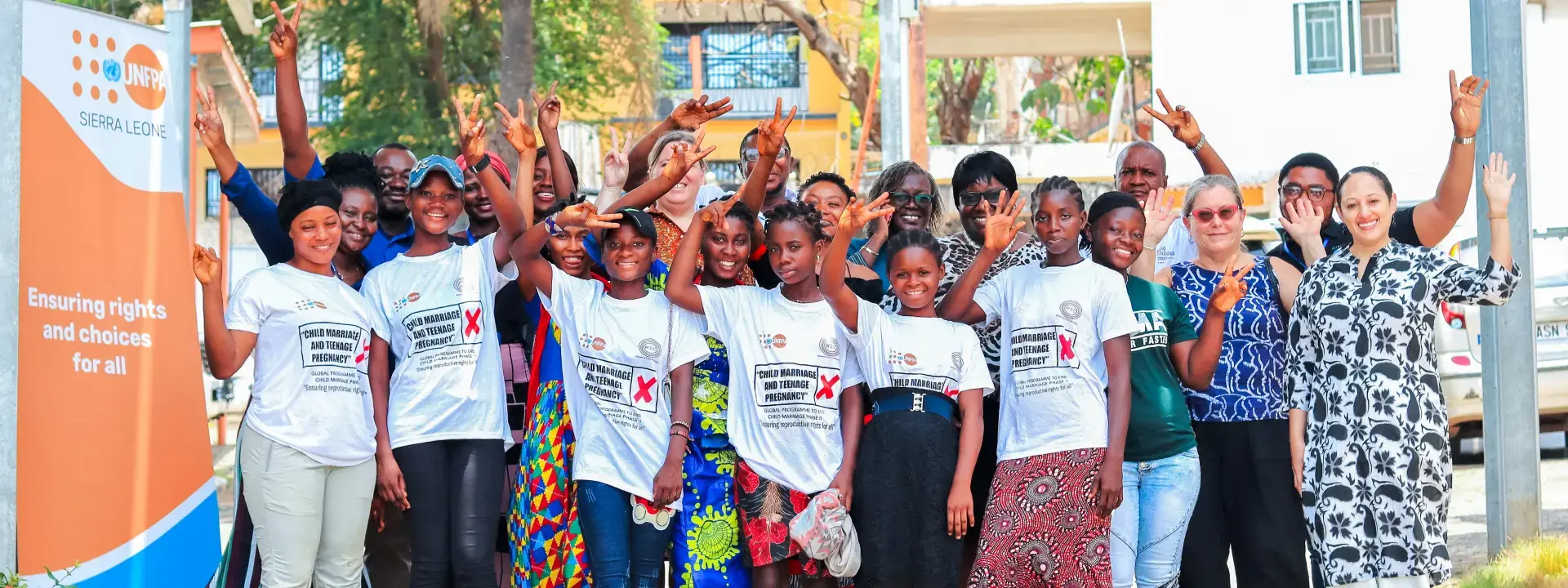Child marriage
Child marriage is a human rights violation. Despite laws against it, the practice remains widespread: Globally, one in every five girls is married, or in union, before reaching age 18. In the least developed countries, that number doubles – 40 per cent of girls are married before age 18, and 12 per cent of girls are married before age 15.
Child marriage threatens girls’ lives and health, and it limits their future prospects. Girls pressed into child marriage often become pregnant while still adolescents, increasing the risk of complications in pregnancy or childbirth. These complications are the leading cause of death among older adolescent girls.
UNFPA promotes policies, programmes and legislation designed to end child marriage. UNFPA supports evidence-based, girl-centred investments that empower girls with the information, skills and services they need to be healthy, educated and safe, helping them make a successful transition to adulthood. UNFPA also works to support the needs of married girls particularly in family planning and maternal health.
The UNFPA-UNICEF Global Programme on Child Marriage recognizes that ending child marriage entails addressing the complex sociocultural and structural factors underpinning the practice. The joint programme targets different areas: adolescent girls; their social and economic environment, protection and service delivery; and actions at the national, regional and global levels.
One of UNFPA’s areas of focus in Sierra Leone in achieving gender justice and equality has been forms of violence and social practices that violate the human rights and the health of women and girls. One of the most prevalent in Sierra Leone is child marriage, a serious form of child abuse. Global statistics report that every year approximately 15 million girls are married before the age of 18. The region of West and Central Africa has the highest prevalence rate of child marriage in Africa, and the world’s second highest prevalence rate (after South Asia).
According to the Demographic Health Survey 2013, 21 per cent of adolescents aged 15-19 years in Sierra Leone have begun childbearing. Teenage child bearing contributes to nearly one third (28 per cent) of all pregnancies nationwide, and 40 per cent of maternal deaths occur as a result of teenage pregnancy.
In 2019, UNFPA worked with NGOs Women in Crisis Movement, MATCOPS, FINE-SL and the Office of the First Lady in the final year of the global programme to achieve the following:
- It reached 6,763 adolescent girls’ club members in safe spaces with age-appropriate information on sexual reproductive health, life skills, financial literacy and livelihood skills using the government-validated and standardized national life skills manual. Some of these girls now serve as mentors or ambassadors in their communities, building networks to support and provide information to other girls, who were not part of the clubs, on their experiences in the safe spaces.
- Enhanced community ownership and sustainability of the global End Child Marriage Programme, through district-level Crisis Response Groups set up in four districts (Kambia,
- Port Loko, Bonthe and Pujehun). The groups consist of community stakeholders, gatekeepers and service providers and they actively monitor and follow up on reports of any child marriage incidences for appropriate action. A total of 234 mentors were linked with community stakeholders and Crisis Response Group members to monitor child marriage in the communities.
- UNFPA provided technical and financial support to the First Lady’s ‘Hands off Our Girls’ Campaign, which was rolled out in 14 districts across the country, reaching teachers, school pupils, traditional leaders, wives of paramount chiefs, religious and government functionaries, young people, the media, civil society and local council authorities and soweis. The campaign reached over 1,000,000 participants with messages on the urgency of ending child marriage, teenage pregnancy and rape. A total of 149 Paramount Chiefs made an official commitment to end child marriage and these local authorities were crowned Champions of the Hands off Our Girls Campaign in their various districts.


